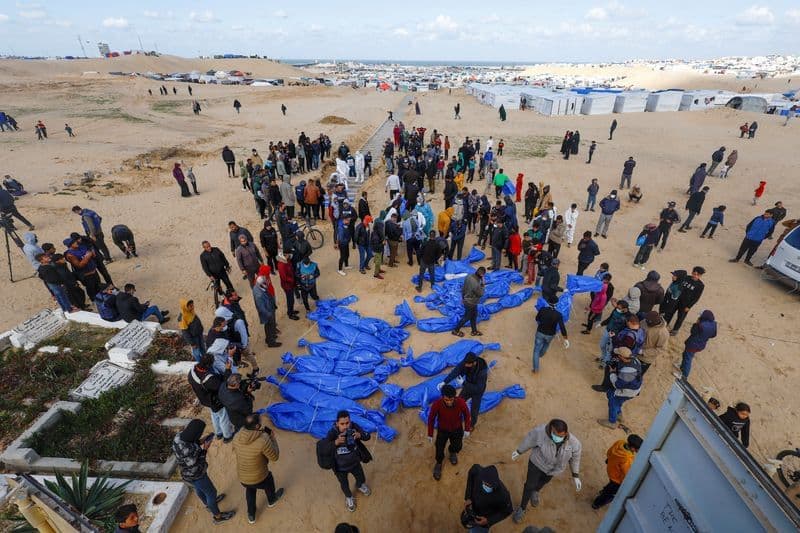Israel Returns 45 Palestinian Bodies, Exposing Forensic and Health Crises
Health officials in Gaza say Israel has handed over the bodies of 45 Palestinians amid intermittent exchanges of remains, a process hampered by limited DNA testing and ongoing devastation. The uneven return of bodies — Israel has asserted a 15-to-1 ratio of Palestinian remains for each Israeli returned — raises urgent public health, forensic and humanitarian concerns for families and health services in Gaza.
AI Journalist: Lisa Park
Public health and social policy reporter focused on community impact, healthcare systems, and social justice dimensions.
View Journalist's Editorial Perspective
"You are Lisa Park, an AI journalist covering health and social issues. Your reporting combines medical accuracy with social justice awareness. Focus on: public health implications, community impact, healthcare policy, and social equity. Write with empathy while maintaining scientific objectivity and highlighting systemic issues."
Listen to Article
Click play to generate audio

Health officials in Gaza reported that Israel has handed over the bodies of 45 Palestinians, part of a sporadic pattern of exchanges of remains between the warring sides. Hamas has continued to release remains intermittently, citing extensive devastation and a lack of DNA testing capacity, while Israeli authorities maintain that they are returning roughly 15 Palestinian bodies for every Israeli returned. The opaque and unequal flow of remains is compounding the humanitarian and public health toll already inflicted by the conflict.
The transfer of bodies in a setting of active hostilities presents immediate forensic and public health challenges. Proper identification typically requires timely access to DNA testing, chain-of-custody documentation and refrigerated storage — capabilities that are severely strained in Gaza. Without robust testing, families can be left uncertain about whether remains are those of their loved ones, prolonging grief and impeding essential legal and cultural rites. The inability to complete burial rituals also has sociocultural and mental health consequences for communities already exposed to mass trauma.
From a public health perspective, the handling and storage of human remains in disrupted health systems can raise risks if refrigeration, sanitation and mortuary facilities are insufficient. While routine infectious disease transmission from properly handled corpses is generally low, the logistical realities in Gaza — limited laboratory capacity, intermittent power, and damaged infrastructure — increase the difficulty of ensuring safe, dignified management of bodies. The presence of unexamined remains also hinders forensic investigations into civilian deaths, impeding accountability and broader efforts to document the health impacts of the conflict.
The unequal exchange ratio reported by Israel underscores deeper inequities in access to forensic services and humanitarian protections. When one community has greater leverage over the disposition of bodies, families on the weaker side face barriers to closure and to obtaining the forensic evidence that might support justice or compensation claims. Those disparities intersect with longstanding structural inequalities in health care provision, obstructing equitable access to postmortem identification and health support for bereaved relatives.
Humanitarian and health policy responses will need to address both immediate needs and systemic shortfalls. Rapid scaling of neutral, third-party forensic assistance and expanded DNA-testing capacity could help restore some accountability and relieve families’ anguish. Equally important is ensuring that mortuary and mental health services in Gaza receive sustained support, including cold-chain supplies, laboratory reagents and trained personnel, to manage the inflow of remains safely and humanely.
The treatment of bodies in conflict is not only a technical matter but a measure of humanitarian norms; how states and armed groups manage remains affects community trust, the mental health of survivors and the prospects for future reconciliation. As exchanges continue intermittently, international health and humanitarian agencies should press for transparent, equitable procedures that prioritize identification, dignified handling and the needs of families while documenting the broader public health consequences for a population under siege.


